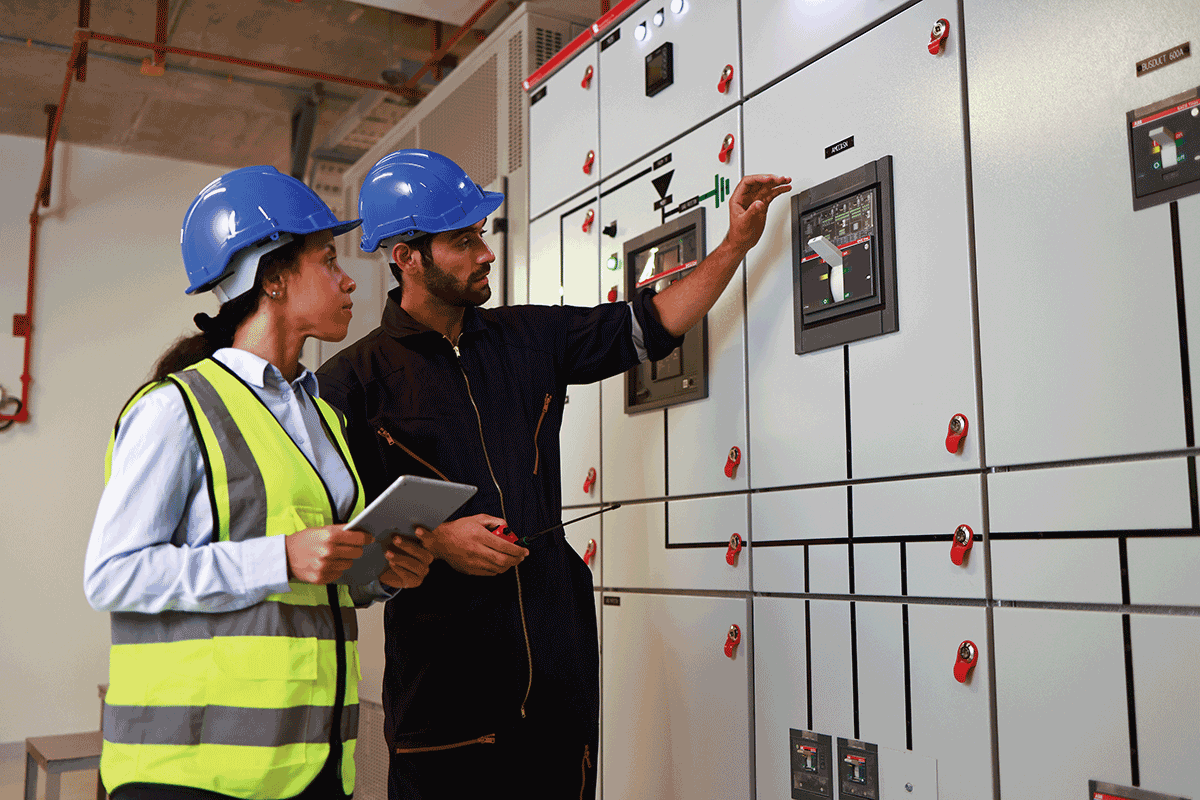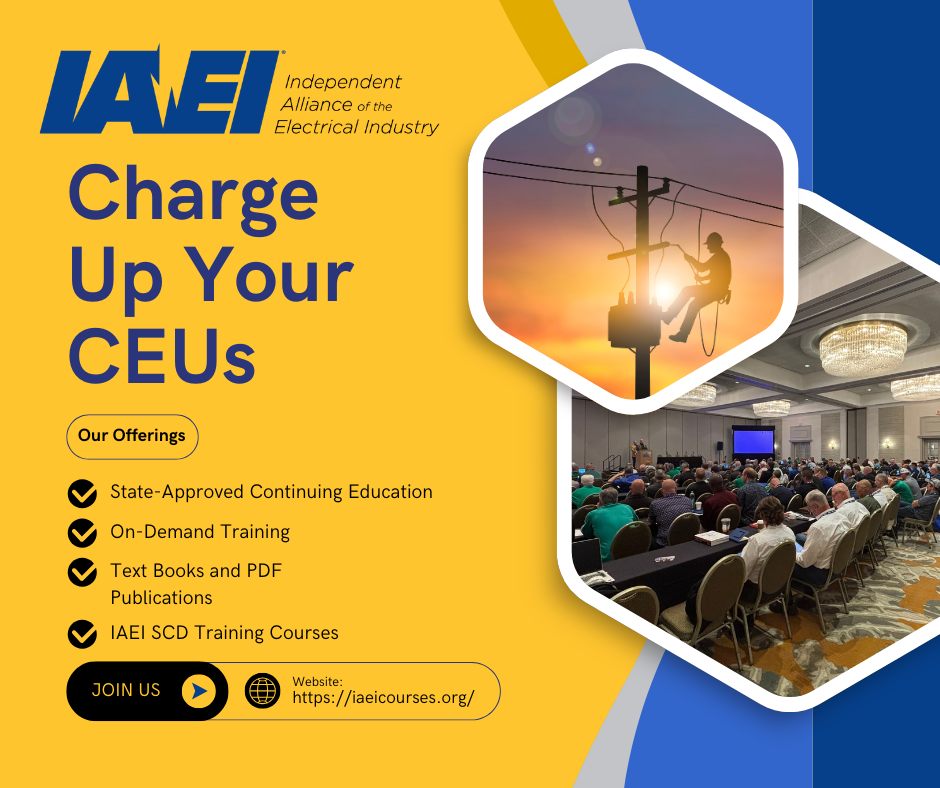Having a positive mindset is the only way to success in anything. Maintaining a positive and effective working relationship in business is crucial. The same is found in the construction industry. This article is only the opinion of a small-town fellow in rural Idaho who might have a viewpoint similar to that of other inspectors throughout the country. The goal of this article is to hopefully provide insight into both sides of code enforcement as it relates to the construction industry.
Rules of an Inspector
Inspectors of any trade are not always wired the same, and no pun is intended. As we look at an overview of what an inspector does, it will help us to understand the importance of their point of view. An inspector is, by definition, “one who is appointed or employed to inspect something”. In the construction industry, an inspector is also known as an “authority having jurisdiction” or one that inspects to a standard. Right away, this can be challenging on both sides of a conversation. One side is receiving a correction notice that can cost money to fix, and the other is giving a correction notice.
Role of a contractor
A contractor of any discipline applies valuable talent and workmanship to construct, wire, assemble, or create a usable product or space for safe use by many people for many years to come. Planning, management, and safety all come into play when accomplishing a project for the end user, owner, or occupant. A contractor’s goal of safety should be in parallel with that of an inspector and vice versa. This provides for an honest working relationship between both parties striving to accomplish a common goal.
Resource or obstacle
“To be a resource rather than an obstacle” has been the mission statement for the Building Department in the City of Rexburg for many years now. City Staff have found it to be great common ground to work on in every project. One might ask, “How can this possibly happen”? It’s easier than one might think.
For example, if an inspector asks questions about how something was done rather than why something was done, it may come across as inquiring rather than offending. It can also be taken as wanting to learn. Another example could be offering a compliment of how well the installation looks. When people act interested in another person, the conversation is immediately less contentious, naturally and organically.
I truly believe there is merit in the concept of why people have two ears and one mouth: more listening and less talking.
A contractor and an inspector should always be a resource to one another, not an obstacle. It’s been my experience that when two people of different viewpoints come together with a common goal, they can accomplish anything. This applies to the relationship between an inspector and a contractor. If both parties are a resource to one another, they both come away with additional knowledge and understanding.
In my career, I have found it to be true that contractors want to do the right thing. They are never wanting to cause problems or accidents on purpose.
Role as an inspector
Inspectors are essentially another set of eyes on a project. They inspect to a standard or adopted code and provide written comments on potential code violations or non-compliant installations. Inspecting can best be described as an easter egg hunt for code violations, with contractors not intentionally hiding violations. It’s been in our experience in our local municipality that the most successful inspectors are those who have years of experience in the discipline they inspect. This helps the inspector understand the amount of work required to address the non-compliant issue and provides for a more relatable relationship with the contractor. It also assists in understanding what the code is trying to accomplish or requiring.
Trust and Respect
As with any relationship, trust and respect are essential. This is the key to any longstanding and successful working relationship. If you treat the inspector/inspection agency with respect, it is much more likely that you, too, will be respected, and your voice and concerns will be heard. Trust and respect will also serve the electrician or contractor well if there are any gray areas of the Code, which may be subject to the interpretation of the AHJ, as the inspector will be more open to your thoughts. Listen to the inspector and learn while at the same time gaining the opportunity to let them learn from you as well.
The inspector can also learn from the installer or contractor, especially if the inspector has not installed any electrical wiring for some time; this can also be referred to as “been out of the trade for a while”. As technologies advance and industry practices change, it can be very beneficial to the inspector to listen and try to better understand the contractor’s way of doing things.
Permits
Make sure that you have complied with all permitting requirements. Be accurate with the information provided to the inspector, such as the correct address of the job site, etc. This is simple, but it really helps. Also, include any pertinent details of what is being inspected, such as a basement finish on an existing home. Then, and this cannot be overemphasized, have the work ready for inspection when the inspector is called. No inspector wants to be the “punch list creator”. The inspector is there to inspect the project as if the occupants are planning to occupy the space tomorrow. Make sure the work is ready for inspection. Inspectors should not be expected to approve work that is incomplete and does not meet minimum code standards. Inspectors sign their names and place their reputations on the line when they sign off a job, just as the contractor does.
Be aware of local ordinances
Before bidding or starting a job, search out the Code yourself, along with any special Code rules that may apply. Seek out and keep copies of the state and local electrical codes and be familiar with the requirements. It is always a good plan to ask the inspector for specific information or interpretations before the job begins. Make sure you ask before you assume anything; we know what that leads to in any situation. This is especially important if the project includes any unique processes or occupancies. This can help to keep an installer from becoming angry or upset with an inspector for simply doing his job enforcing the Code rules.
Professionalism and Leadership
Professionalism and leadership cover all aspects of the electrical trade. A true professional is skilled in his or her work; the work itself reflects this.
Professionalism is also reflected in one’s attitude and in how he treats others. We are all learning constantly, and we should always strive to do our best. In addition, we should always be “students of the trade.”
Good leadership is how one leads others in making the electrical trade and each other better every day by setting goals and achievable expectations and following up on the results. The end goal should be to provide the highest level of public safety through the concerted effort of an inspector and a contractor. Inspectors must set the example of good leadership first. Leadership in respecting others, knowledge of the Code and of the electrical trade and electrical installations, giving fair and friendly customer service, clear communication, and being open-minded toward others’ points of view are some qualities of an excellent electrical inspector.
Most inspectors want to sign off good work when they see it and expect it to be done correctly. Good inspectors truly want to work well with the contractors and public, and to help them keep their projects moving, as long as the work is “up to Code.” They are happy to spot good work, praise the installer, and appreciate a job well done. The best way to get along with an inspector is to communicate and to do your job well.
Learn to read and follow construction plans and instructions
It is also very important to know how to read and apply the Code to construction plans, as well as to read and follow the manufacturer’s installation instructions. This is very important to avoid costly errors and delays.
Scheduling and delays
Delays happen in construction, and electrical is no exception. It is important to follow a schedule for planning a project, including inspections. This would include a delay in another trade that led the electrician to get behind the project. Most inspectors have had some experience in the field and understand delays and timelines. Therefore, the inspector is going to understand if a project is progressing slowly, but make sure it’s communicated clearly to avoid wasting his time. He will not only appreciate that but will also gain the trust and respect that you are a responsible person he can work well with. This will go a long way should you need him to do an inspection unannounced or at a specific time.
Accessible and Readily Accessible
Make sure the inspector has access to the work being inspected. This may be due to a lock or gate. Not providing easy access to the job can be frustrating and time-consuming. Plan as if the inspector has never been there before and knows nothing about the project site or location. It’s always good to provide the name and phone number of the foreman or person in charge of the specific project or area. If there are animals or young children present, make sure the foreman or an adult is there to avoid any awkward circumstances. Re-scheduling is better than putting the inspector or owner in an awkward situation.
Safety and PPE
It’s always best to have an extra hard hat, safety glasses, hearing protection, or other safety equipment for the inspector in case they don’t bring them. As an electrician or contractor, you should know the safety protocols as well or better than the inspector. You should never ask or subject the inspector to unsafe working condition; this includes energized equipment. Let the owner and other people working in the building know that you may have to shut off the power or test an alarm or emergency system.
Corrections
If corrections are written on the job, make them in a timely manner, and call for re-inspection as soon as it can be done. Be open to the inspector’s point of view and the inspector should do the same. He or she should be able to explain why the correction was written and give a Code reference to back it up. If you don’t understand, ask! This goes for inspectors as well! If you made a mistake, admit it, and do what you can to fix it.
All of us are capable of making mistakes. If you disagree with a call the inspector has made or with a correction written, research the subject yourself first, make a case for your viewpoint by preparing your thoughts, and respectfully make an appeal to the decision. If presented in the right way, without putting the inspector on the defensive, he may change his mind, see your point of view, and change his position. We all should be able to have an open conversation about interpreting the code. In Rexburg, we frequently ask why a non-typical installation was done in such a manner, not negatively, but genuinely in good faith. This will allow the contractor or installer to explain their point of view first, then the inspector has the ability to accept and potentially better understand the reasoning behind it. This is a team effort from both parties! One last tip: make sure you don’t use the inspector as your quality control person; walk the job before calling in an inspection. This will develop trust between you and the inspector.
Summary
In closing, we have looked at ways installers, designers, and maintenance personnel can improve how they relate to the electrical inspection community. For the most part, contrary to popular belief, people become inspectors because they really care about others and electrical safety and are here to work with you if you give them a chance, not because “they couldn’t make it in the real world”. Electrical inspectors are vital for safety, and their job is important. Always remember that a good inspector is your ally and friend—your partner in electrical safety. So the answer to the question is, yes, inspectors can and should get along with anybody.











Find Us on Socials